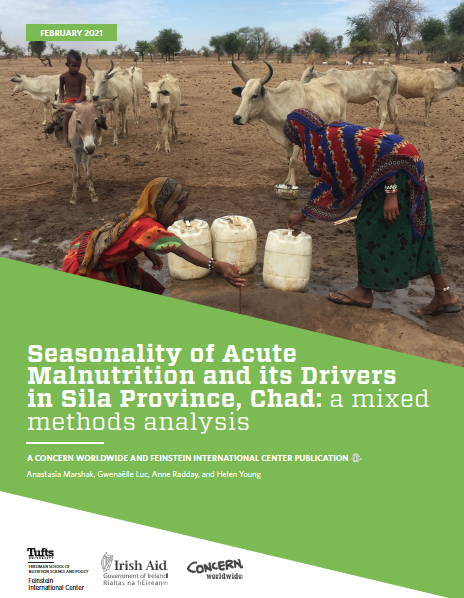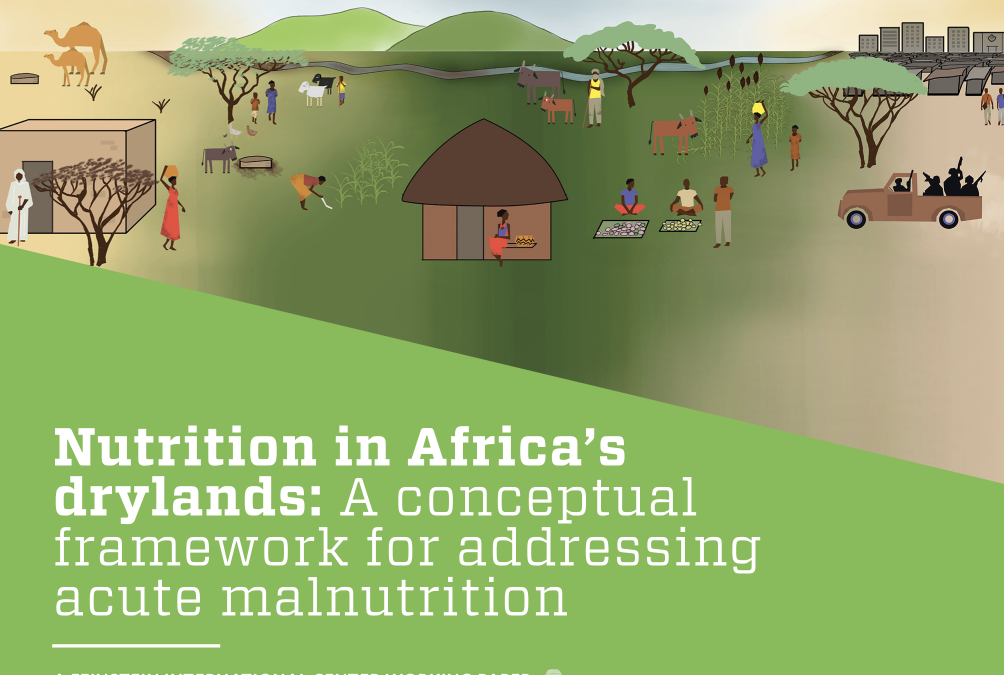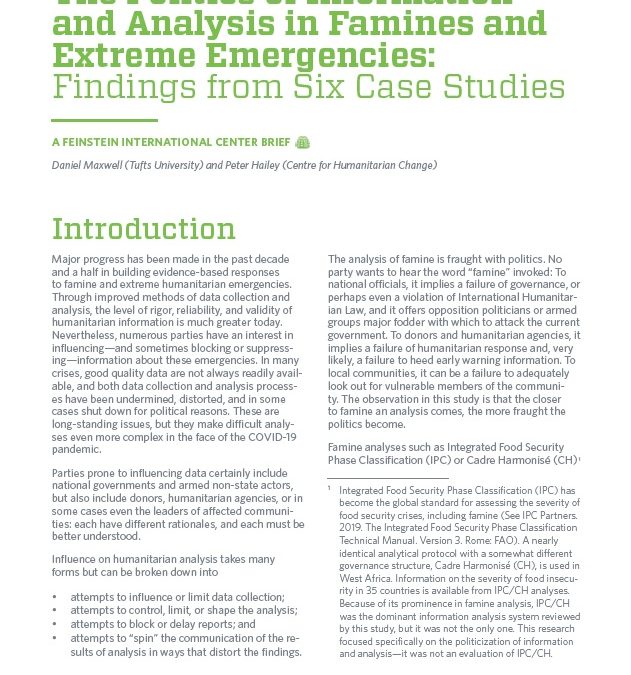
Seasonality of Acute Malnutrition and its Drivers in Sila Province, Chad: a mixed methods analysis
This report explores the seasonal patterns of acute malnutrition and its key drivers in the Goz Beida Region of Chad.

This report explores the seasonal patterns of acute malnutrition and its key drivers in the Goz Beida Region of Chad.
This study seeks to understand the availability and quality of information, and the external influences on data collection and analysis for the classification of food emergencies.

This brief reviews and updates the generally accepted conceptual framework of drivers of acute malnutrition in Africa’s drylands, where emergency levels of global acute malnutrition stubbornly persist.

This is a brief on the full report of the study that synthesized findings from six different country case studies, noting influences on data collection and analysis processes during emergencies.
The One Nutrition in Complex Environments (ONCE) study tests a new way of preventing and addressing acute malnutrition through a cluster-randomized trial.